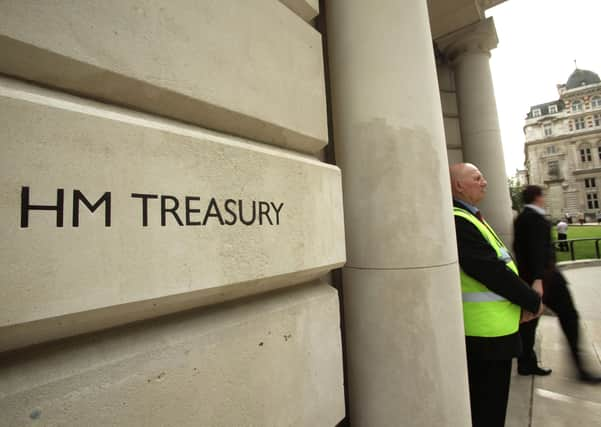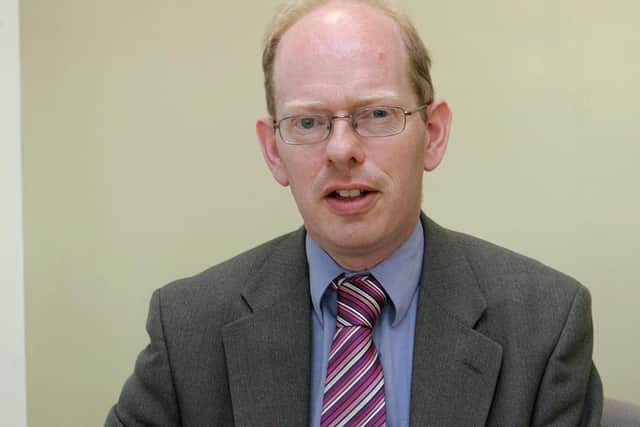Economist: ‘The lessons from RHI give us a once in a generation chance to improve politics in Northern Ireland’


It took 2.5 years and the cost of the inquiry has been up to £15m, once you allow for the cost of legal services used by the Northern Ireland Departments and the civil service time diverted.
Nevertheless, this is a once in a generation opportunity to make government work better.
What are some of the lessons which are likely to emerge?


• Good intentions are not enough
Advertisement
Hide AdAdvertisement
Hide AdThe intentions behind the RHI were noble and good but policies can have large unintended consequences.
• Governments can fail too
We are used to the argument that sometimes the actions of individuals or private businesses have bad consequences. Government policy making sometimes can also fail as RHI showed.
• Quantitative targets can be dangerous
One of the drivers behind the RHI was a desire to reach a target of 10% of heat energy generated by renewables by 2020 (that target derived in turn from EU environmental policy). Targets can perform a useful role. The danger is that they become all-consuming and policy makers are blinded to any unintended (often negative) consequences of achieving those targets.
• Reliable and up to date data is essential in forming policy
Advertisement
Hide AdAdvertisement
Hide AdIt appears the Economy Department did not collect data on the actual cost of biomass fuels until very late in the day (2015). This is one reason why it took so long to identify that the RHI incentives had become overly generous.
• Good policy making is especially challenging in a very small place
If NI was an independent country it would be one of the smallest countries in the world. With a population of only 1.9m it may not always be realistic to expect the region to have enough talent or ‘band width’ to devise and administer complex policies.
One of the many painful points in the inquiry evidence was when we learnt just how meagre the NI Economy’s staff resources were compared to its Whitehall counterpart— two full time equivalents compared to 77!
Advertisement
Hide AdAdvertisement
Hide AdOne of the notable features of the RHI affair is how NI government chose to replicate the broad outlines of the existing GB scheme but then decided to vary the details of tariffs levels and structures. Crucially, the GB scheme allowed for ‘degression’— a cap on total spending if demand surged — but there was no such provision in the original version in NI.
• Economic Departments should assume that individuals and businesses do respond to incentives
Economic behaviour is all about how individuals or firms react to costs and prices. This is how incentives work — to buy more or less, to invest more or less. The Economy Department should have anticipated that a very high subsidy for boilers (one which exceeded the cost of biomass fuels) would encourage wanton use of the boilers. The ‘burn or earn’, ‘ash for cash’ outcome which was such an ironic result for what was meant to be an environmental policy.
The whistleblower confirmed what they should themselves have worked out. At one point in the inquiry, Judge Coghlin joked that perhaps the NI Department (unlike its counterpart in London) assumed people would be too ethical to exploit the RHI incentives!
Advertisement
Hide AdAdvertisement
Hide Ad• Good policy making in NI can be undermined by excessive reliance on the UK Treasury as funder of last resort
For years there was a widespread mentality amongst some NI officials and others that all would be well because, ultimately, the UK Treasury would cover 100% of the costs of the scheme. There were some strong warnings that this would not be the case but these were ignored until it was too late.
The bigger picture issue is the extent to which if some senior civil servants may see their role as primarily one of maximising/maintaining the block grant to NI from the UK Treasury. This implies less priority is given to other aspects of policy development.
• You tamper with the security of property rights at your peril
Advertisement
Hide AdAdvertisement
Hide AdThere a lot of evidence from around the world that security of property rights is a vital precondition for economic growth and development. If businesses feel such rights are not secure they may invest less and growth will be lower.
The RHI affair has done reputational damage to NI in this regard. When the scheme was introduced in 2012 as an incentive to investors it was strongly promoted by NI government. It was implied the level of incentives would be guaranteed for perhaps 20 years.
In 2016-17 not only was the RHI closed to new investors but the assembly introduced new regulations to reduce the payments to existing investors.
In an imperfect situation the Northern Ireland government may have had little choice about such cost control measures but it is possible that investors will now view the NI location with less confidence.
• Dr Esmond Birnie is a senior economist at the University of Ulster